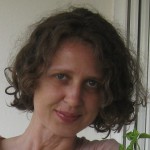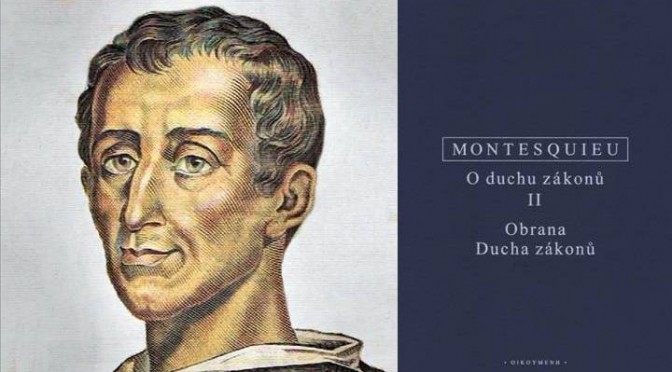Program
 Monday 11 April – Prague
Monday 11 April – Prague
6-8 PM
Lecture and debate organized by CEFRES in partnership with the French Institute in Prague.
Topic: Cold War Translations: Actors and Practices of Book Circulations Beyond the Iron Curtain and their Reception in France.
Discussant : Jovanka Šotolová, Department of Translation of the Faculty of Arts of Charles University, and a translator of French literature.
Language: French with Czech translation.
Where: Conference room of the French Institute, Štěpánská 35, 5th floor.
Tuesday 12 April – Bratislava
6-8 PM
Lecture co-organized by the Institute of World Literature of the Slovak Academy of Sciences and the French Institute in Bratislava.
Topic: Translating Under Duress. A Sociological Approach to the Transfers of Central European Literatures in France during the Cold War.
Language: French.
Where: French Institute in Bratislava.
Wednesday 13 April – Bratislava
10:30-12:30 AM
Monthly seminar of the Institute of World Literature of the Slovak Academy of Sciences.
Topic: The Institutionalization and International Construction of Area Studies in France during the Cold War. Insights from the Russian and Eastern European Program of the Ecole Pratique des Hautes Etudes 6th Section.
Language: English.
Where: Institute of World Literature.
Thursday 14 and Friday 15 April – Prague
10:00 AM
International conference on “Translation Between Languages, Cultures and History” organized by the Department of South Slavonic and Balkan Studies of the Faculty of Arts of Charles University, the Institute of World Literature of the Slovak Academy of Sciences and the Romanian Cultural Institute in Prague.
Keynote speech: Translation Routes: a Sociology of Literary Transfers between East and West during the Cold War.
Organizers: Libuša Vajdová (ISL SAV) and Libuše Valentová (FF UK).
Where: Hybernská 3, Prague 1 (Faculty od Arts).
The full program will be online soon!

A session led by Jana Vargovčíková
‘In olden days a glimpse of stocking was looked on as something shocking. Now, heaven knows, anything goes.’ (Cole Porter).
Far from being anomalies or mere accidents, transgressions are conditioned and given meaning by norms. Subsequently, norms repeatedly reaffirm their legitimacy and meaning in contrast to transgressions. What is considered as transgression and when transgression gains the potential of being turned into a scandal varies in time and space, as the quote suggests. That is why, given the imbrication of norms and transgressions, social scientists and philosophers have turned to cases of transgression in order to understand order, social norms and institutions, as well as to comprehend the nature of the distinction between the two (e.g. Foucault, Becker, Hughes, Goffman). Leaving normative preconceptions aside, then, a sociologist or political scientist can learn from an anthropologist and treat transgressions in the political realm as indicators of the (symbolic, but not exclusively so) structure of the state. Political scandals as narratives of events labelled as transgressive represent precisely such means of enquiry into how a political body organizes the limits of its norms (De Blic & Lemieux) and into how citizens relate to the political order (Gupta).
Readings:
- Damien de Blic & Cyril Lemieux. ‘Le scandale comme épreuve.’ Politix 71 (3): 9–38, 2005.
- Akhil Gupta. ‘Blurred Boundaries: The Discourse of Corruption, the Culture of Politics, and the Imagined State.’ American Ethnologist 22 (2): 375–402, 1995.
- Chris Jenkins. ‘Transgression: The Concept.’ Architectural Design 83 (6): 20, 2013.

Hana Fořtová presents her Czech translation of Montesquieu’s The Spirit of the laws at the CEFRES library, on the occasion of the publication of the last volume by Oikoymenh publisher.
The first scientific edition of this major text of the European thought gives way for the Czech audience to Montesquieu’s notes and to a contemporary critical commentary .
Montesquieu, O duchu zákonů II., Obrana Ducha zákonů ; přeložila a poznámkami opatřila Hana Fořtová, Praha, OIKOYMENH, 2015, 584 s. Continue reading “The Spirit of the Laws”. Presentation of the Czech translation →
Session led by Mátyás Erdélyi.
The present seminar session investigates how social statistics were created, comprehended, and used for commercial and public purposes in Dualist Hungary. It explores different modes of quantification, the inter- or pre-disciplinary sights of scientific production, and power relations between competing expert and nascent professions. Central to this line of inquiry is the investigation of relations between statisticians and other notables (i.e. every person worth of attention and involved in the debate, be it a politician, businessman, any type of scholar) inclined to claim authority over the creation and political/economic use of social statistics. This session contributes to the overall discussions on the nature of interdisciplinarity by describing primeval workshops on interdisciplinarity and by showing how the search for timeless truths and objectivity can be deviated by political and economic interests amidst disciplinary competition.
Readings:
- Theodore M. Porter. ‘Life Insurance, Medical Testing, and the Management of Mortality.’ In Lorraine Daston (ed). Biographies of Scientific Objects. Chicago: University of Chicago Press, 2000, pp. 226-246.
- Alain Desrosières. La Politique des Grands Nombres: Histoire de la Raison Statistique. Paris: La Découverte, 1993.

A session led by Mátyás Erdélyi
The present seminar session investigates how social statistics were created, comprehended, and used for commercial and public purposes in Dualist Hungary. It explores different modes of quantification, the inter- or pre-disciplinary sights of scientific production, and power relations between competing expert and nascent professions. Central to this line of inquiry is the investigation of relations between statisticians and other notables (i.e. every person worth of attention and involved in the debate, be it a politician, businessman, any type of scholar) inclined to claim authority over the creation and political/economic use of social statistics. This session contributes to the overall discussions on the nature of interdisciplinarity by describing primeval workshops on interdisciplinarity and by showing how the search for timeless truths and objectivity can be deviated by political and economic interests amidst disciplinary competition.
Readings:
- Theodore M. Porter. ‘Life Insurance, Medical Testing, and the Management of Mortality.’ In Lorraine Daston (ed). Biographies of Scientific Objects. Chicago: University of Chicago Press, 2000, pp. 226-246.
- Alain Desrosières. La Politique des Grands Nombres: Histoire de la Raison Statistique. Paris: La Découverte, 1993.
In the frame of IMS and CEFRES’s common seminar “Between Disciplines and Areas”, Barbora Mencová (FSV UK) will present her work on Czechoslovak-Portuguese relations in 1960-1980.
Where: CEFRES library, Na Florenci 3.
Language: English.
 Monday 11 April – Prague
Monday 11 April – Prague

